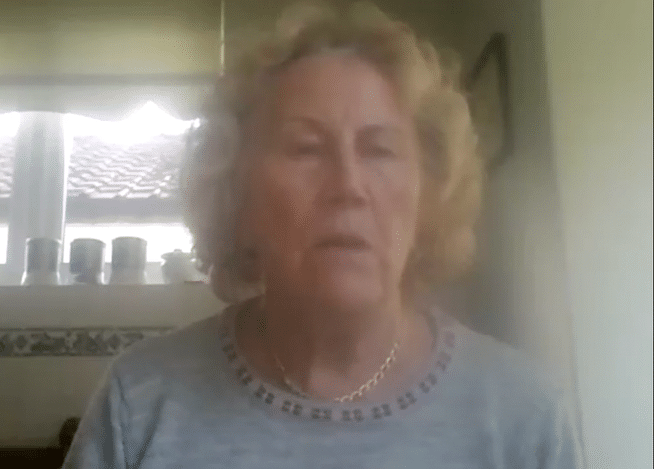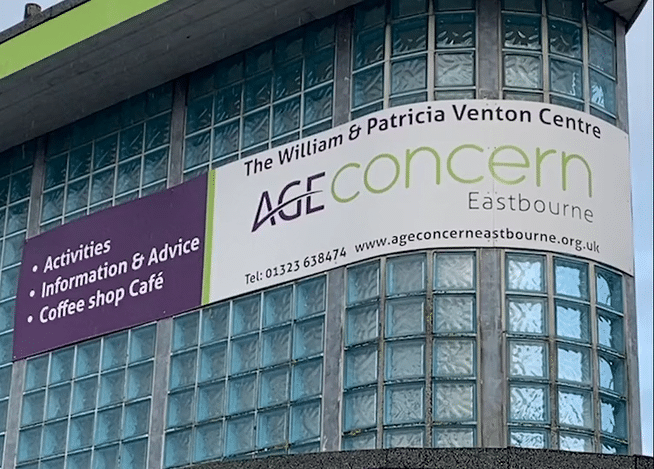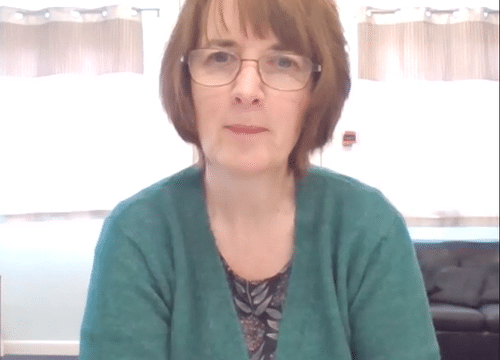The COVID-19 pandemic has affected the world both in terms of economic downturns but more importantly, in the human cost of not being able to socialise with our friends and family.
Economically, as of March 15, 2021, the UK government reported that 11.4 million people were furloughed from their jobs. This comes as employers adapt to the effects of downtrading due to lockdowns, social distancing laws and policies.
The human costs can only begin to be counted when we start to discuss the mental health impact that stress brought on by furlough, shielding and lockdown has had on people’s states of mind.
On 23 March 2020, 1.5 million clinically vulnerable people were “strongly advised” to self-isolate and stay-at-home. Initially for a period of 12 weeks, to reduce the risks of infection and to stay safe from COVID-19.
Furloughed 81-year-old widow
Semi-retired Housekeeper Jackie Caprari, 81, from Gidea Park, London has now lost her job but was furloughed for over 9 months.

Mrs Caprari followed shielding advice and felt lonely saying that shielding has been tough on her, as a widow, in two ways: “One way is you see no-one. No-one at all. Because of lockdown of course, you don’t see anyone.
“It’s not that you feel alone, it’s that you become completely one, because there is no contact with the outside world.
Yes, you’ve got your phone, you’ve got the computer so you can Zoom in with friends, it’s not the same. You need human contact, not someone on a TV screen.”
During her furlough period Mrs Caprari’s employer did not contact her at all.
This led to her suffering stress and feelings of rejection: “It’s not so much that I feel forgotten, that I feel totally abandoned.”
Following the stay-at-home message, this level of shielding has led to a new level of mental health anguish that people of retirement age never thought they would face.
Over 70s and shielding
The over 70s see themselves as a tough, resilient generation – those born during and just after the Second World War.
They have held-fast and faced their fears over the last 70 years; from the Cuban missile crisis through to decades of living with the potential nuclear armageddon that the Cold War could have wrought on the world.

As a result, they are not the type of people to call out for help unless they absolutely need support. They often see themselves as strong, independent people who have learnt to cope.
COVID-19 shielding changed that.
Now, the over-70s find that they are less likely to receive help during shielding than any other groups.
Extra 1 million GP appointments per week
Although the UK infection rate has now fallen to summer 2020 levels, NHS England reported a 15 per cent rise in overall GP appointments when comparing late January 2021 with the equivalent pre COVID-19 levels of January 2020.
These extra 1 million GP appointments per week put a strain on NHS services and the GP network and allow for less time to be spent dealing with mental health problems.
Charities offer help
To help with this lack of support, more people than ever are turning to charities to help them live a normal life in abnormal times.
Liz Maxted and Lindy Creasey help to run Age Concern Eastbourne, a charitable drop-in centre for the over-50s in Eastbourne.

Ms Maxted says that currently: “Because of COVID, we’ve got a very limited service.”
Their centre had to close to visitors during lockdowns, so they turned to helping people online through Zoom, Facetime and even over the plain ordinary telephone.
Talking about how their clients adapted to lockdowns Ms Creasey said: “Their focus is on, can they still get their feet done?
“Can they still get advice on, any legal matter that’s troubling them right now?
That’s, really the focus this time.”
Ann Gillard, CEO of The People Matter Trust says that in their experience as a charity in Eastbourne that helps people find work: “There have been significant numbers of people who will be in floods of tears on the phone, at a complete loss, some people in denial about what’s happening.
“And others who are very lonely and will say ‘you’re the first person I’ve spoken to for days, no-one else has been in contact.’

“Now obviously, over a period of time that’s changed, its improved as people have gone out. But, that sense of loneliness has been really, really quite marked.
“Loneliness is a killer…it really is.”
If after reading this article, you or a someone you know is suffering from mental health issues due to lockdown or shielding, these charities have offered to help those affected by loneliness:
Eastbourne Age Concern:
Tel: 01323 638474
www.ageconcerneastbourne.org.uk
People Matter:
Tel: 07843 190738
Samaritans:
Tel: 116 123 (freephone)


